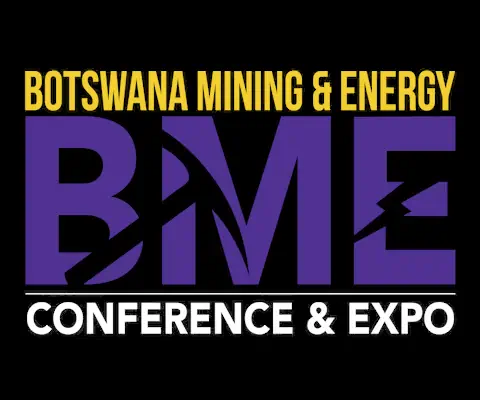Mining Industry, Industrial Policy and Economic Upgrade
 V.B. Kondratiev
V.B. Kondratiev
Institute of World Economy and International Relations of the Russian Academy of Sciences, Moscow, Russian Federation
Russian Mining Industry №3 / 2022 р. 61-68
Abstract: The aim of this article is to analyze the role of industrial policy in promoting technological modernization and economic upgrading in two mining countries, i.e. Brazil and South Africa. It analyzes the mining complex of these countries, in which they have achieved certain advantages in international markets. The main results show the significant difficulties that industrial policy faces in creating mechanisms to overcome economic and technological lags. Transition towards a higher added value and more sophisticated and diversified economic activity forms the basis of a sustainable and healthy economy, allowing companies and industries to fully implement their potential, involves investment in a wide range of production facilities and institutional structures.
Keywords: South Africa, Brazil, mining industry, industrial policy, economic upgrade
For citation: Kondratiev V.B. Mining Industry, Industrial Policy and Economic Upgrade. Russian Mining Industry. 2022;(3):61–68. https://doi.org/10.30686/1609-9192-2022-3-61-68
Article info
Received: 24.02.2022
Revised: 16.03.2022
Accepted: 18.03.2022
Information about the author
Vladimir B. Kondratiev – Dr. Sci. (Econ.), Professor, Head of Center for Industrial and Investment Research, Institute of World Economy and International Relations of the Russian Academy of Sciences, Moscow, Russian Federation; e-mail: This email address is being protected from spambots. You need JavaScript enabled to view it.
References
1. Andreoni A., Chang H.-J. The political economy of industrial policy: Structural interdependencies, policy alignment and conflict management. Structural Change and Economic Dynamics. 2019;48:136–150. https://doi.org/10.1016/j.strueco.2018.10.007
2. Garcia R., Ulisses P., Wilson S. Industrial upgrade, economic catch-up and industrial policy in Brazil: general trends and the specific case of the mining industry. Nova Economia. 2020;30:1089–1114. https://doi.org/10.1590/0103-6351/6244
3. Suzigan W., Garcia R., Feitosa P.H.A. Institutions and industrial policy in Brazil after two decades: have we built the needed institutions? Economics of Innovation and New Technology. 2020;29(7):799–813. https://doi.org/10.1080/10438599.2020.1719629
4. Rocha F. Does governmental support to innovation have positive effect on R&D investments? Evidence from Brazil. Available at: https://www.anpec.org.br/encontro/2013/files_I/i9-7acc85281add75205348a46caeddbad6.pdf
5. Nassif A., Bresser-Pereira L. C.; Feijó C. The case for reindustrialisation in developing countries: towards the connection between the macroeconomic regime and the industrial policy in Brazil. Cambridge Journal of Economics. 2017;42(2):355–381. https://doi.org/10.1093/cje/bex028
6. Kupfer D., Ferraz J.C., Marques F.S. The return of industrial policy in Brazil. In: Stiglitz J.E., Lin J.Y. (eds). The industrial policy revolution. London: Springer; 2013, pp. 327–339. https://doi.org/10.1057/9781137335173_20
7. Blundi D., da Silva Loureiro A.C.N., de Carvalho S.M.P., Jorge M.F., Lopes F.V., da Silva G.T.P., Orind V. Technology appropriation and technology transfer in the Brazilian mining sector. Geneva: WIPO; 2019. 30 p. Available at: https://www.gov.br/inpi/pt-br/servicos/academia/arquivo/livros-e-capitulos/wipo_pub_econstat_wp_53.pdf
8. Daly A., Valacchi G., Raffo J. Mining patent data: Measuring innovation in the mining industry with patents. Geneva; 2019. Available at: https://www.wipo.int/edocs/pubdocs/en/wipo_pub_econstat_wp_56.pdf
9. Min Y.K., Lee S.G., Aoshima Y. A comparative study on industrial spillover effects among Korea, China, the USA, Germany and Japan. Industrial Management & Data Systems. 2018;119(3):454–472. https://doi.org/10.1108/IMDS-05-2018-0215
10. Andreoni A., Torreggiani S. Mining equipment industry in South Africa: global context, industrial ecosystem and pathways for feasible sectoral reforms. CCRED Working Paper 3/2020. Johannesburg; 2020.
11. Goga S., Mondliwa P., Roberts S. Economic power and regulation: the political economy of metals, machinery and equipment industries in South Africa. In: Webster E., Francis D., Valodia I. (eds) Inequality Studies from the Global South. London: Routledge; 2020, pp. 75–98.
12. Barnes J., Black A., Roberts S. Towards a digital industrial policy for South Africa: a review of the issues. Industrial Development Think Tank; 2019. Available at: http://www.thedtic.gov.za/wp-content/uploads/DPIP.pdf
13. Andreoni A., Mondliwa P., Roberts S., Tregenna F. Structural Transformation in South Africa: The Challenges of Inclusive Industrial Development in a Middle-Income Country. Oxford, UK: Oxford University Press; 2021. https://doi.org/10.1093/oso/9780192894311.001.0001
14. Dolo S., Odendaal M., Togo G. South Africa: Horizontal linkages–Building expertise by overcoming country-specific constraints (Case Study). IGF Guidance for Governments: Leveraging Local Content Decisions for Sustainable Development. Winnipeg: IISD.; 2018. Available at: https://www.iisd.org/sites/default/files/publications/case-study-south-africa-horizontallinkages.pdf
15. Kaziboni L., Nkhonjera M., Roberts S. Machinery, equipment and electronic control systems: leading reindustrialisation in Southern Africa. Digital Industrial Policy Framework Issues Paper 1, CCRED. Johannesburg: University of Johannesburg; 2019. Available at: https://www.competition.org.za/ccred-blog-digital-industrial-policy/2020/4/20/machinery-equipment-andelectronic-control-systems-leading-reindustrialisation-in-southern-africa





